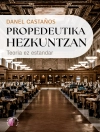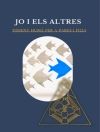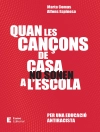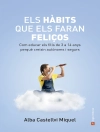Based on groundbreaking new ideas, this treatise signals a return to a rebuilding and reshaping of the curriculum as the primary tool for education
This book presents a new definition of ‘curriculum’ and what it should consist of, with a view toward creating a more ethical, educated, and thinking person. Rather than treating students as ‘products’ for society, this approach returns to a view of the curriculum as a tool for educating students to reason through problems, be bold in creating new solutions, and contribute to a more vibrant, just world.
The university curriculum introduced in the post-Renaissance era, dominated by doctrinal philosophy, is based on ‘learning’ or ‘skill development, ‘ suitable for creating a ‘learned’ society that would eventually serve the establishment. This curriculum has been promoted as the only form suitable for the modern education system. It has introduced a tremendous amount of tangible advancement in all fields of the structured education system. These tangible gains are often promoted as ‘knowledge.’ This has created confusion between education (acquiring knowledge) and learning, training or skill development.
This book seeks to clarify the difference between these two divergent views of education. It has been shown that the current curriculum is not conducive to increasing a student’s knowledge because it is based on consolidating preconceived ideas that have been either passed on from previous generations or gained through personal experience. In most cases, this mode of cognition will not create a pathway for gaining knowledge that brings one closer to discovery. The term ‘education, ‘ on the other hand, is always meant to be a process of ‘bringing forth’ one’s inherent qualities and unique traits, necessary and sufficient for increasing one’s knowledge.
Cuprins
Foreword xiii
Acknowledgments xv
Preface xvii
1 Introduction 1
1.1 Widespread malaise – a Summary 1
1.2 Thought as Material 8
1.3 Renewal of Thought-Material Resources and the Nature-Science
Approach 9
2 Curriculum – The Place Where Tangible Content
Wrestles Intangible Process 19
2.1 Introduction 19
2.2 What is ‘Human Thought Material’? 21
2.3 Why This Starting Point? 22
2.4 HTM from the Nature-Science Standpoint 24
2.5 Commodification of HTM 46
2.6 HTM vs Commodification 47
2.7 Skills Development versus Learning from Acts of
‘Finding Out’ 57
2.8 Current Practices in Education 65
2.9 The Need for the Science of Intangibles as the Basis for
Education 69
2.10 The Tangible-Intangible Nexus 70
2.11 The Encounter between European and Islamic Outlooks –
a Delinearized History 74
2.12 Final Words About Education and Training 85
3 Intention: Its Individual and Social Purposes 87
3.1 Introduction 87
3.2 Human Thought Material: A ‘Root + Pathway’
Analysis 88
3.3 Foetal Learning 88
3.4 Aspects of Pre-School Learning and Early Development of
Individuals’ own Thought-Material 90
3.5 Intention: Origins 91
3.6 Nature for Sale? 102
3.7 Conclusions 107
4 Fundamental Changes in Curriculum Development 109
4.1 Introduction 109
4.2 Struggle for Educational Reform: Internal and External
Factors 111
4.3 Muslim-Christian Conflict: A Delinearized Short History
112
4.4 Why did the Scientific Revolution Break Out in Europe and
Not the Islamic World? 116
4.5 Education and Civilization: a Delinearized History 117
4.6 Education and Civilization: the Delinearized Future Prospect
of a Reconstituted Curriculum 123
5 Sustainability and Change in Curriculum Development: The
HSSA Syndrome and Other Maladies 125
5.1. Truth is Knowledge, Knowledge is Peace, So …
What’s the Problem? 125
5.2 What is Sustainability? 126
5.3 What Happens When a Process is Not Sustainable 127
5.4 Theories Proven Wrong? How About ‘Laws’? 131
5.5 Could this be Averted, and if so, How? 136
5.6 Theory, Empirical Outlook and Disinformation in the Social
Sciences 141
6 The Nature-Science Criterion 151
6.1 Introduction – Can Modern Science Distinguish Truth
From Falsehood? 151
6.2 Tangible-Intangible Nexus & the criterion of Truth
vs Falsehood 159
6.3 Negative Impacts of the Science of Tangibles 163
7 The HSSRAR Phenomenon 191
7.1 Introduction 191
7.2 The HSSRAR (Honey Sugar Saccharin R Aspartame R) Pathway
193
8 Concluding Remarks & Observations 207
8.1 Introduction 207
The Appendices 209
Appendix 1a 211
Appendix 2a 325
Appendix 3a 411
References and Bibliography 463
Index 505
Despre autor
M. Rafiq Islam has nearly 30 years of experience in teaching and research, during which time he has supervised over 150 graduate and undergraduate students and postdoctoral fellows and completed over $20 million of funded research. During his career, he has published over 700 research papers and some dozen books on topics ranging from petroleum reservoir modeling to economics. He is the founding executive editor of Journal of Nature Science and Sustainable Technology, Advances in Sustainable Petroleum Engineering Science, Journal of Characterization and Development of Novel Materials, and Journal of Information, Intelligence and Knowledge.
Gary M. Zatzman has decades of investigative journalism and research experience, dozens of articles in technical journals, and three previously published books: Sustainable Resource Development, Sustainable Energy Pricing, and Economics of Intangibles (with M.R. Islam).
Jaan S. Islam is the executive editor of Ummah Youth Journal published in Halifax, Nova Scotia. He has been involved in research in the social sciences as well as technology development and has published numerous papers.












